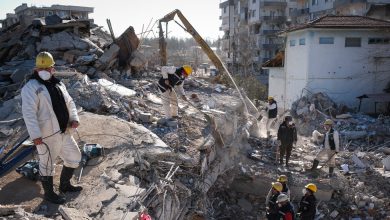The Moral Danger of Declaring the Pandemic Over Too Soon

The early 1990s were in many ways the most terrible of those first years of the AIDS epidemic in America. Research on the disease was in high gear, but drug after drug failed to stop H.I.V. Funerals for friends and family in their 20s, 30s, 40s and 50s continued unabated, and many of us at risk for getting sick had given up hope of a normal life. My friends and I, most of us just a few years out of college, lived in the moment because we weren’t sure of how much time we had left.
My cousin Carl died from AIDS-related lymphoma in July 1995. That was also the year I found out that I, too, was H.I.V. positive. I wondered if Carl’s fate might be my own soon enough.
But then we got lucky. In 1996 a new generation of treatments called protease inhibitors emerged that were able to control H.I.V. Doctors talked about the Lazarus effect: watching their patients go from near death to health. I enrolled in a clinical trial and started taking the drugs that year. I am alive because of them.
In 1996 the writer Andrew Sullivan came to a meeting of an AIDS activist group I co-founded a few years earlier to push AIDS drug development and research forward. It was just after the data on these protease inhibitors had been unveiled at a major scientific conference. We were known as a crew of hard-core skeptics of claims by drug companies and scientists, but the data clearly showed these drugs were revolutionary. They would change the trajectory of the epidemic for many people, including me. Mr. Sullivan went on to write a piece for The New York Times Magazine titled “When Plagues End,” which was published in November of that year and rightly noted that AIDS was no longer a death sentence for all infected by the virus but a chronic manageable illness.
Of course, as Mr. Sullivan recognized, the AIDS pandemic didn’t fully end. In a way it did end for many white middle-class gay men like us; we had access to these drugs and to good medical care overall and could start to think about getting back to normal. But AIDS still lingered and flourished in America in places that were easy for people like us to ignore.
The virus took root in the African American and Latino communities, particularly among young gay men. It moved from New York City and San Francisco to the South and into rural areas, tracing the geography of health disparities in this country. H.I.V. also continued to ravage Africa, and the pills I was taking wouldn’t be available widely there for several years, until activists shamed the world into taking notice. Rather than acknowledge that high drug prices were keeping the pills out of the hands of others, one U.S. official said that Africans couldn’t tell time and thus the AIDS drugs would do no good there.
Nearly three decades later, we’re in the midst of a different pandemic. And we’ve gotten lucky again: We have vaccines for Covid-19, and they are also revolutionary. The pandemic has changed.
And once more, the desire to get back to normal and to declare the end of another pandemic, at least for some of us, is palpable after more than two years of death, suffering and hardship. Governors’ recent lifting of mask mandates reflects that. There’s a demobilization that many suggest is contingent on what might happen with new variants but could easily become permanent. Much, if not most, of the country has moved on or wants to move on from Covid-19.
It’s also clear that SARS-CoV-2 will be with us for the foreseeable future and that it, too, will follow the fault lines of social and economic inequality in America. It will persist in countries — likely many in Africa — where people have insufficient access to vaccines for Covid-19. Some will blame low vaccination rates on the hesitancy of those nations’ residents rather than drug companies withholding their vaccine technology to allow for global scale-up.
There has to be a better way out of the rubble of the past two years. What would it mean to move into a future in which a common fate mattered as much as our own? It would mean no one was disposable.
The lesson of the AIDS pandemic is that it’s easy to leave people behind, even if it is at the cost of our collective peril. Coronavirus variants can develop in people with weakened immune systems who struggle to clear infections on their own, like those with untreated H.I.V. Think of the home we’ve then made for viruses like SARS-CoV-2 by impeding access to vaccines and by allowing millions to go without AIDS treatment even now. Variants can emerge because of our desire to put it all behind us. No one is truly safe until we all are. Yet might we act to save millions of people not just in the interest of self-preservation but also simply because it’s the right thing to do? That would be a signal that this pandemic has changed us. For good.
Gregg Gonsalves (@gregggonsalves) is an associate professor of epidemiology at the Yale School of Public Health, a longtime AIDS activist and a 2018 MacArthur fellow.
The Times is committed to publishing a diversity of letters to the editor. We’d like to hear what you think about this or any of our articles. Here are some tips. And here’s our email: [email protected].
Follow The New York Times Opinion section on Facebook, Twitter (@NYTopinion) and Instagram.





